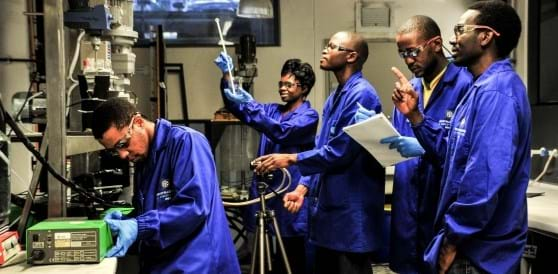Using podcasts to achieve educational excellence in South Africa (Day 337)

29th April 2015
For an individual to excel at chemical engineering, both a good education and personal determination are needed.
Chemical engineering education must be built on a solid foundation in the fundamental principles of chemical engineering science. However, there is a need to constantly review and modernise not just our course content, but the way we deliver it as well.

The Department of Chemical Engineering at the University of Cape Town (UCT), South Africa, has a research group dedicated to engineering education. This group contributes to a wider collaboration in the Centre for Research in Engineering and Science Education (CREE).
At UCT, there is a passion to provide the best possible foundation for young chemical engineers.
The research group's main objective is to understand barriers to learning. By understanding the factors that inhibit the learning of key principles and the acquisition of core skills, the education process can be enhanced. Student retention, self-sufficiency and integration all improve.
The way that students are taught today is rather different from what I experienced as an undergraduate. However, research into learning methods demonstrates that students still consider lectures as an important part of the education process.
Some of the research covered by UCT has addressed the use of podcasts - these provide additional information rather than a substitute for lectures.
The researchers found that when podcasts were provided, more than half of the students accessed them, and, contrary what people might think there was no marked decline in lecture attendance.
Feedback from UCT students indicated that it was particularly useful for those learning in their non-native language. The availability of the podcasts throughout the academic year led to an observed increase in downloads before and during exam times - as one might expect!
The development of more effective education for the next generation of scientists and engineers is always challenging, but the education development programme at UCT is striving to improve teaching methods and promote self-sufficiency of students.
Taking ownership of personal and professional development is something to be encouraged throughout an entire career.
Incidentally, The Chemical Engineer (tce) magazine also make effective use of podcasts. The news team engage in a lively conversation around the content featured in each new issue. They are very informative and listening is highly recommended.
Last year, a new curriculum for chemical engineering students at UCT was lauched. The aim is to improve learning and relevance. Classes are structured as 45 minute lectures followed by 45 minute mini-tutorials. Practical work is also important, as is project work. Competency and understanding is also assessed in a variety of ways.
Advances in technology are changing the way we live and the way in which we learn.
I believe that these new developments at UCT are a great step forward and I look forward to hearing more about the impact they have on learning outcomes in South Africa.
If you have any updates on new and novel teaching methods why not share them below?